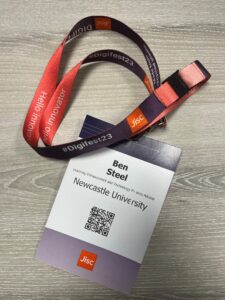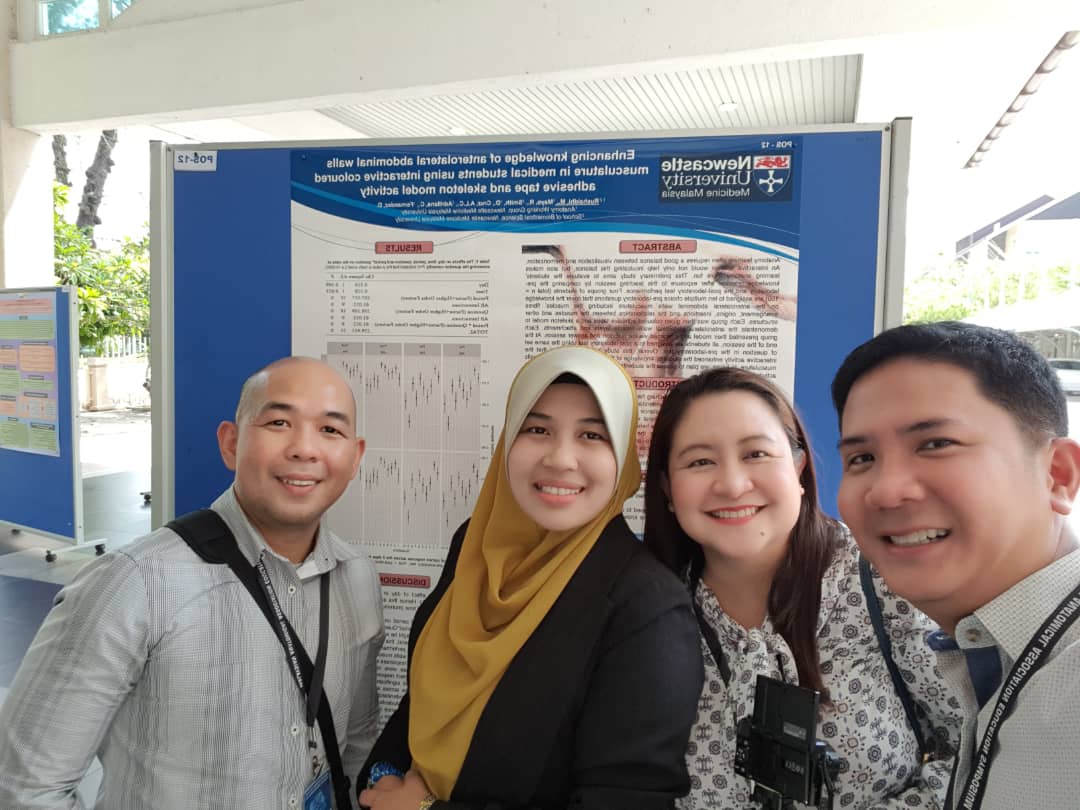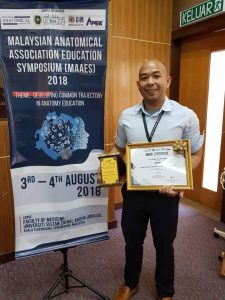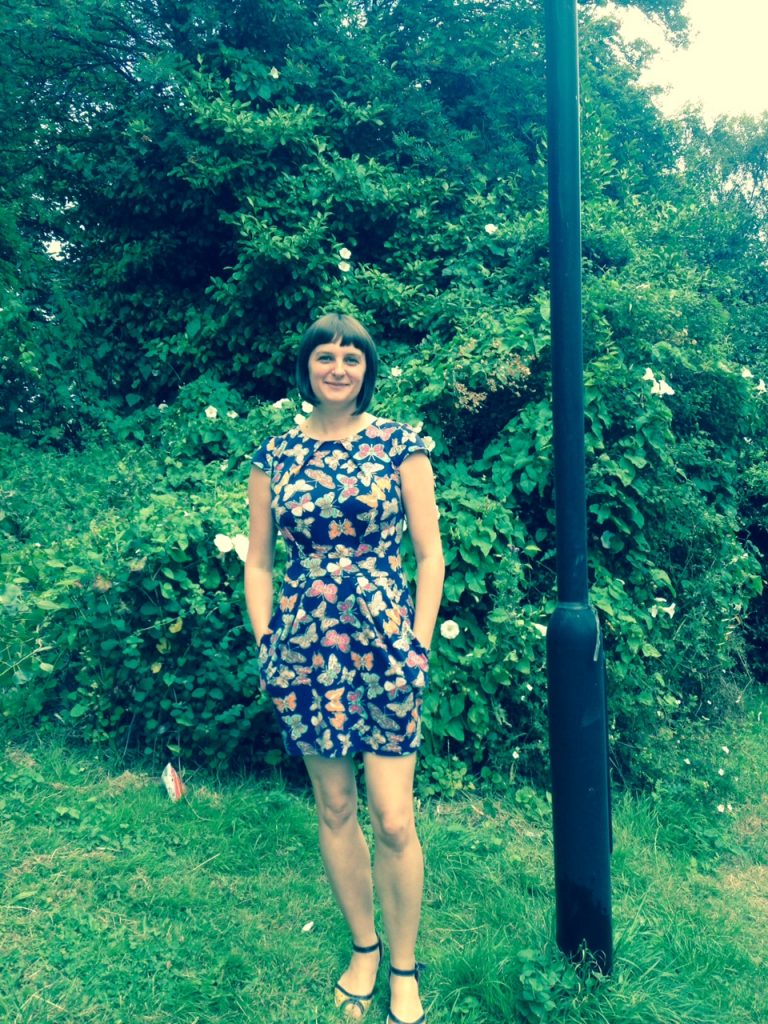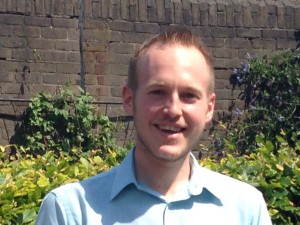The Jisc Digifest 2023 was held on 7-8 March at Birmingham ICC (it was also online) and I was fortunate enough to attend this year’s event.
According the Digifest website Digifest is:
‘a celebration of the creative minds who think differently, who introduce new ideas and technologies to their organisations. Whether it’s the researcher at the cutting edge of vaccine development, the lecturer inspiring the next generation or the manager leading digital transformation, Digifest is for the innovators of tomorrow.’
The two days both had a packed agenda of exciting talks, presentations, discussions, and great catering. The agenda was based around celebrating innovation in all its forms using three key tracks:
- Learning, teaching, and resources
- Research
- Leadership and culture
The agenda was so packed, you couldn’t get around everything. Here are some of my highlights from the event and some useful links to follow up if you wanted to know more.
The event started on the Tuesday with Heidi Fraser-Krauss, chief executive of Jisc, welcoming everyone to Digifest 2023.
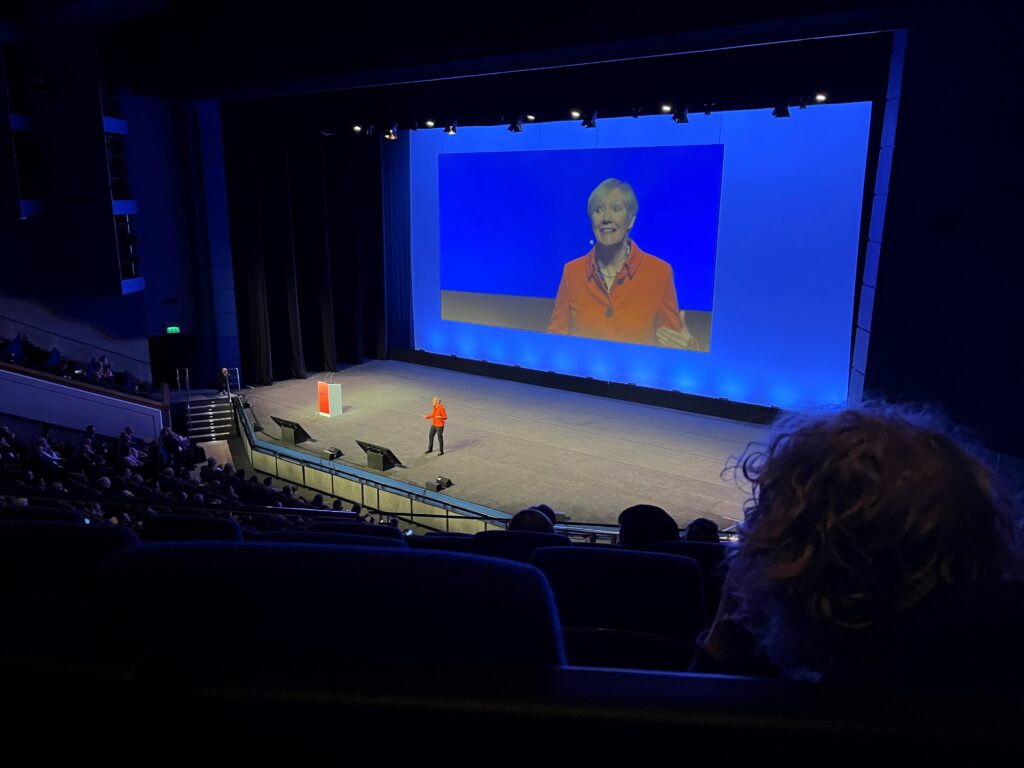
This was followed by a great keynote presentation from Inma Martinez, a digital pioneer and AI scientist, and a leading authority in the sectors of digital technology and machine intelligence. Since the 1990s, Inma has been a revolutionary figure within the technology industry and has become well known for her talent to create social engagement through technology. She’s been recognised as one of the top 50 AI influencers to follow on Twitter and one of the top 20 women changing the landscape of data.
Inma’s session was called ‘How artificial intelligence will ignite human creativity and help pave the way to human and machine innovation’: AI is making incredible (and fast) inroads into the innovation processes of many creative industries. This session explored how education will benefit from an AI that enhances human creativity, and how the future of innovation is a collaborative sandbox for humans and machine intelligence. The key takeaway from Inma’s session was not to panic. Although Open AI is here and it’s probably not going anywhere, the question is, how we can use it, rather than how is it going to change everything. AI can’t replicate our own imagination and emotional intelligence. Neoteny (a new word for me) is something that only we as humans go through and this how we can use AI to our advantage rather than panicking about how AI might change our industry.
Find out more about Inma and her work.
Before lunch (which was very good), I managed to catch three further sessions.
Firstly, a lightning talk called ‘Fostering authentic assessment and feedback to hone 21st-century skills’. In this session, Abdulla Dilimi showcased how TU Dublin, OsloMet, and Deakin University cultivated high-quality feedback and authentic assessment with the help of pedagogical technology. The session was very good. As you’d expect, it was giving high praise to authentic assessment, focusing on how authentic assessment could combat some of the negative aspects of open AI technology; and how personalised feedback is a key benefit to authentic assessment.
The second session was called ‘How green is your campus? Supporting a student friendly, sustainable hybrid campus’. In this 30-minute session Anne Robertson, head of EDINA services, University of Edinburgh, gave a presentation of simple and fast location data solutions that:
- Support students to find their way around campus, highlighting sustainable travel solutions and helping them find and book study spaces.
- Enable estates colleagues to sustainably and safely manage the physical estate.
- Assist with effective energy management, in a hybrid working world.
With the use of campus maps and real time analysis, University of Edinburgh helped students to become greener and get the best out of their time on campus. To maximise the use of university spaces and ensure that students could find a space to study with friends or individually across their vast campus.
The final session before lunch was a session about using virtual reality in teaching and learning practical skills. Josephine Grech, biology lecturer and digital excellence leader from Cardiff and Vale College gave a demonstration of how virtual reality is used in training learners for WorldSkills competitions, but also how it is applied in the classroom to increase engagement and learning outcomes. This was really engaging as a viewer and clearly engaging for the students. It is also student-led and student-developed to enhance the learning for others.
The first session in the afternoon was a keynote panel discussion with:
- Paul Burne, customer success/service lead – hybrid edge, Amazon Web Services (AWS);
- Karen Cooper, senior director – offer management, Honeywell;
- Gareth Piggott, major accounts manager, Fortinet;
- Richard Jackson, lead cloud security specialist, Jisc.
The title for the panel was called ‘On the Edge’ and was about a cloud-based programme called Edge Computing. This session was quite interesting and went through the benefits of this product.
The final session of the day was around Micro Credentials and how these have been utilised at Abertay University. They have seemed to get the best out of micro credentials using them across multiple courses in stage one and providing students with skills outside of their discipline.
The second day opened with a truly inspiring keynote presentation by Dr Sue Black, entitled ‘If I can Do It, So Can You’. Sue told the story of her life and career, the ups, the downs, and how by putting herself out of comfort zone, she was able to achieve so much and support so many other women.
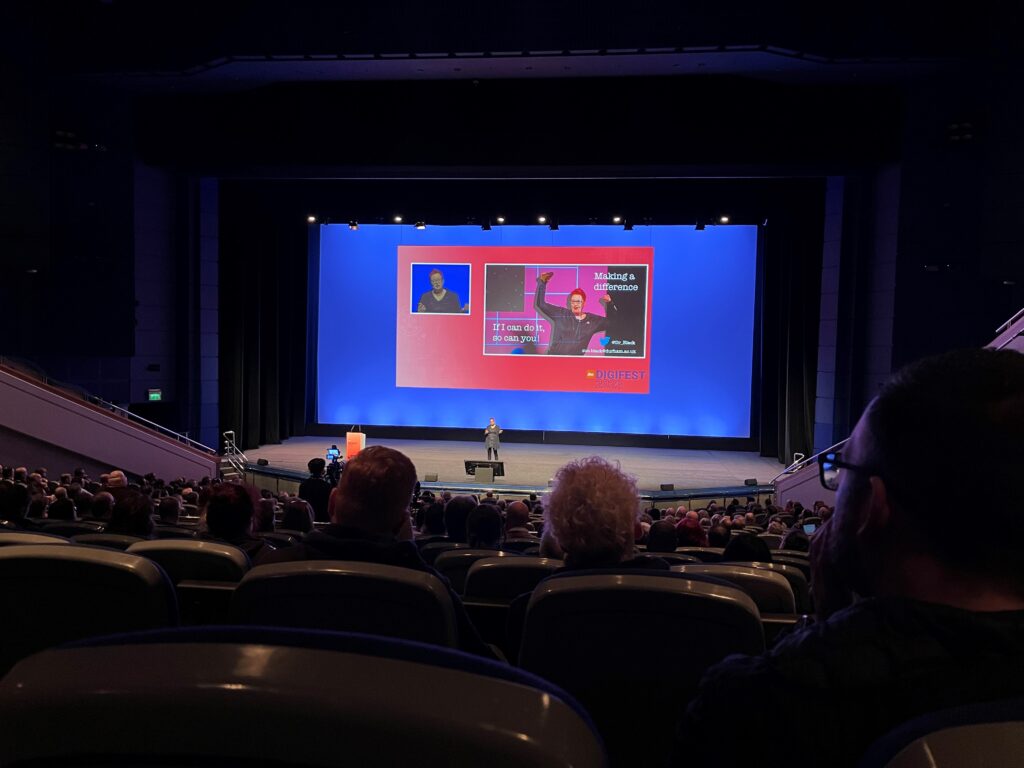
Sue talked about her passion for getting everyone excited about the opportunities that technology offers, how she brought her family out of poverty and built a successful career through education, and a determination to succeed.
This was a great way to start day two of the conference on International Women’s Day.
Here are some links to find out more about Sue, her work and how she saved Bletchley Park:
- sueblack.co.uk/
- Tech Up – retraining women from underserved communities into technology careers.
- #Techmums – #techmums is here to take the mystery out of technology. Whether it’s helping you to reconnect with old friends via social media, chatting to your child about online safety or finding out how to use technology to help you at work, #techmums can help!
- And what impressed me the most, she’s been on desert island discs.
The rest of day two I managed to take in these sessions.
Firstly, Richard Buckley and Kate Whyles from Nottingham College delivered a session called ‘What does that button do?’ Shifting digital culture and growing innovation, engagement, and attainment at Nottingham College. The presentation went through how a small but perfectly formed team of six is at the forefront of developing and promoting a culture of digital curiosity, innovation, and increased collaboration to help drive up standards in teaching, learning and assessment in one of the UK’s largest FE colleges. My key takeaway was the phrase Positive Nuisance, I like that concept. How can you be a nuisance to others but in a way that will positively affect our students.
The second session was about how good AI and using things like the WHO5 can be for supporting students with their mental health and allow us to safeguard our students. Professor Peter Francis, deputy vice-chancellor (academic), Birmingham City University, took us through how their project developed a ‘predictive analytic system’ that integrates data from across university sectors and generates a predicted likelihood score for students experiencing poor wellbeing in the following month.
Implementing a model of student consent for this system, approximately 70% of the student population consented and this predictive system has shown over 80% accuracy in identifying students at risk of poor mental wellbeing. Through this identification they were able to intervene proactively through tailored messages to students that highlight wellbeing services that are proportionate to their level of risk.
The final session before I braved the snow and the long train journey home was about why you should consider student-led learning for your future education.
The session focussed on four key areas to fuel activity and deepen learning for our students. These were:
- Challenge
- Curiosity
- Control
- Fantasy
This will help students to develop job-readiness and learn to take responsibility themselves.
Digifest 2023 was a fantastic conference, and I would recommend getting along next year if you can. Please get in touch if you would like to know more, and thank you for reading.

